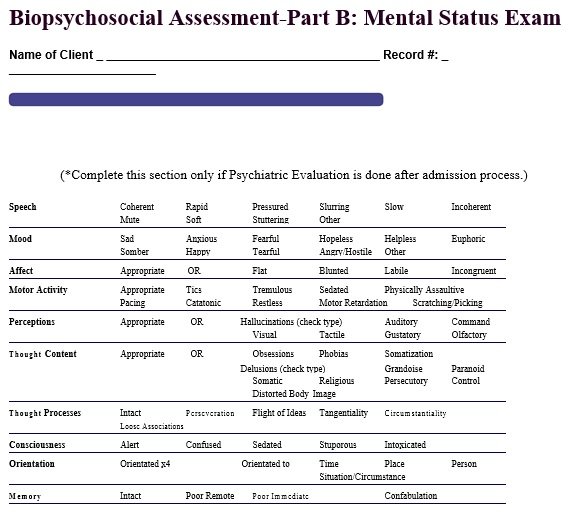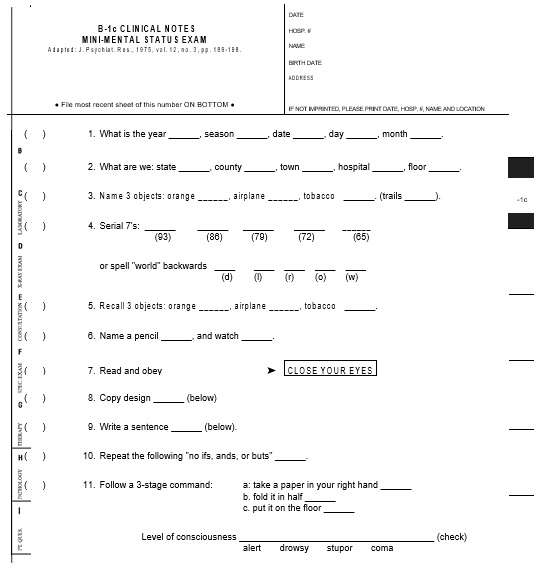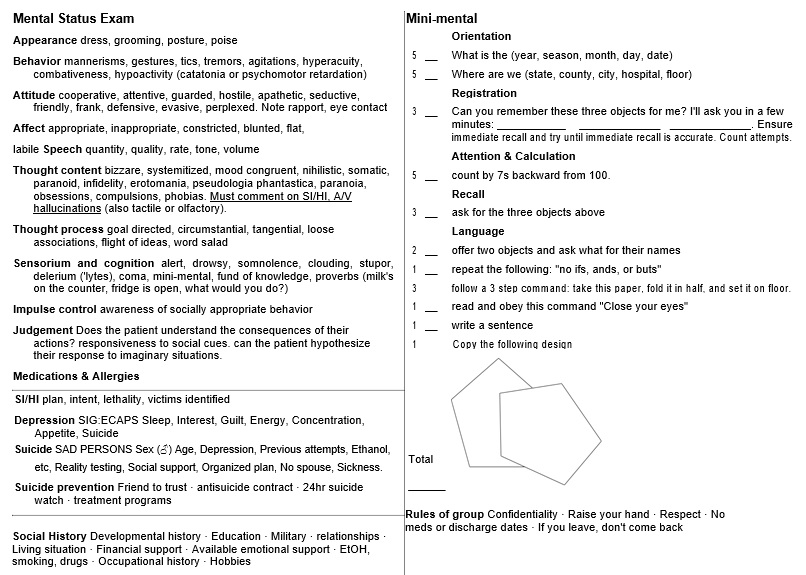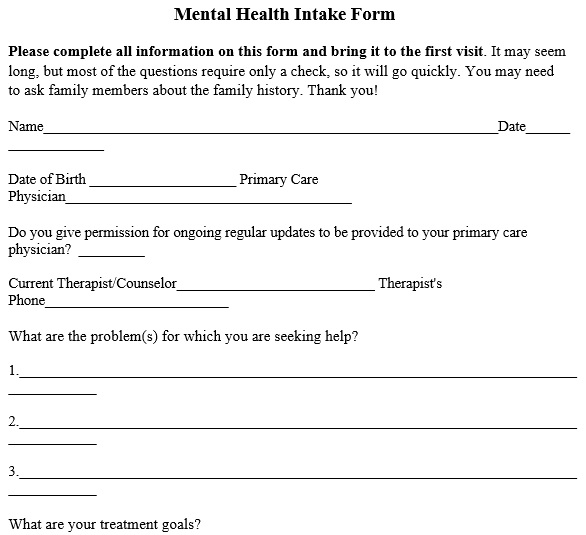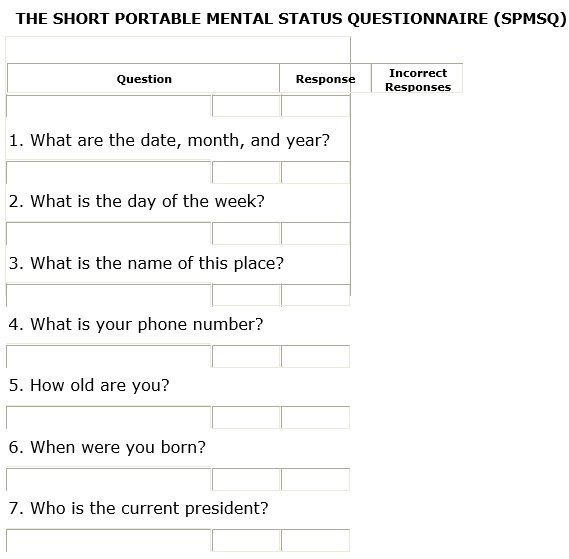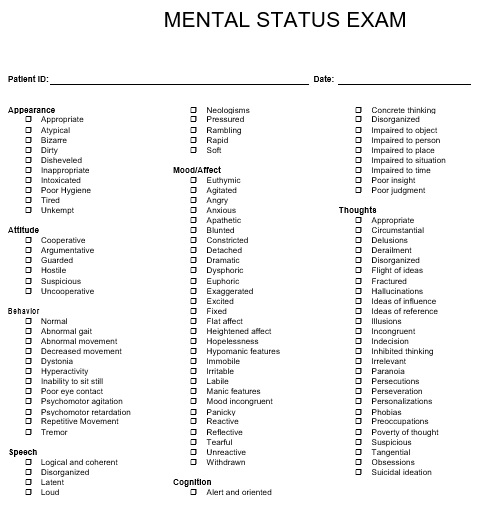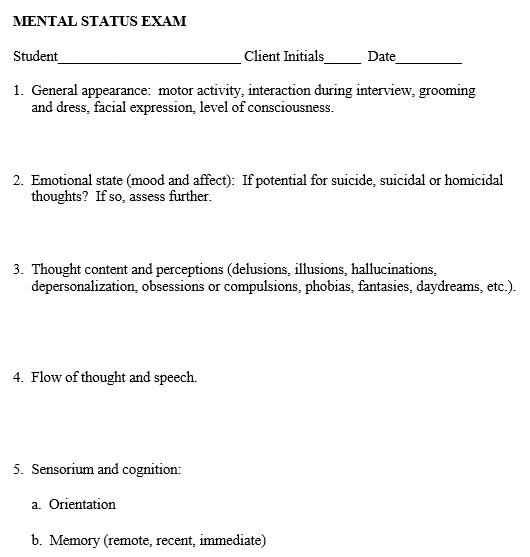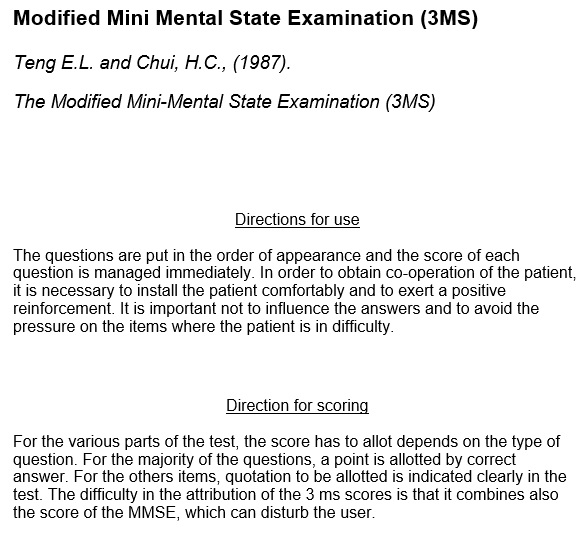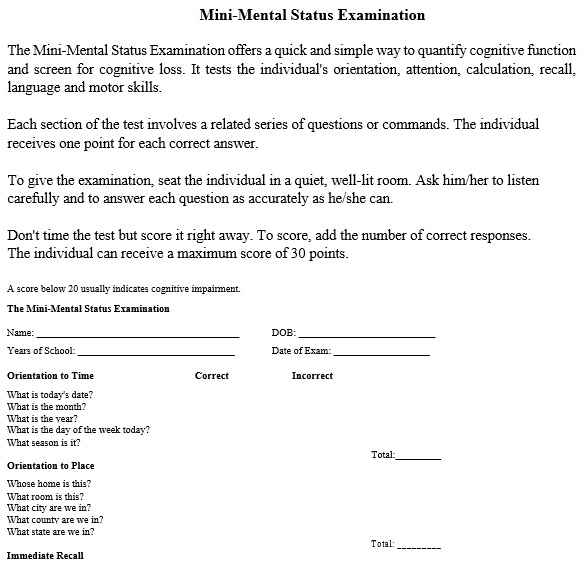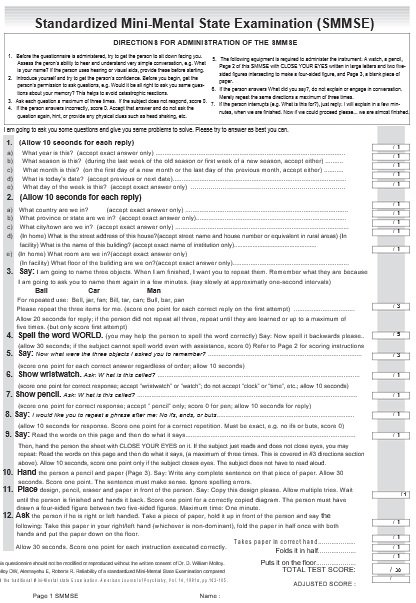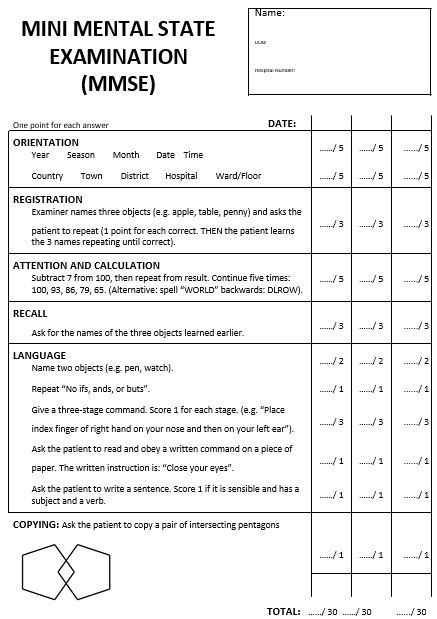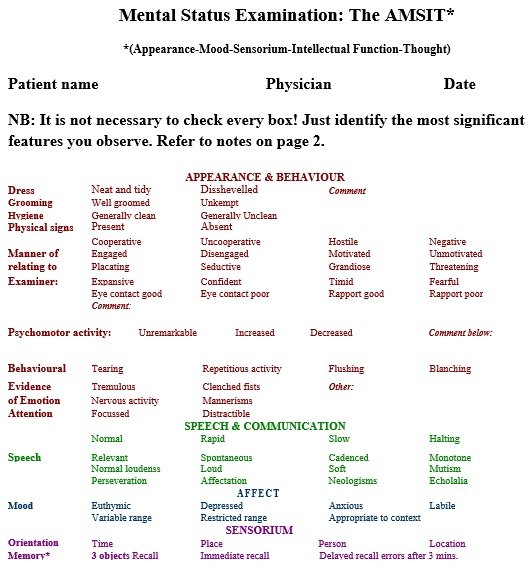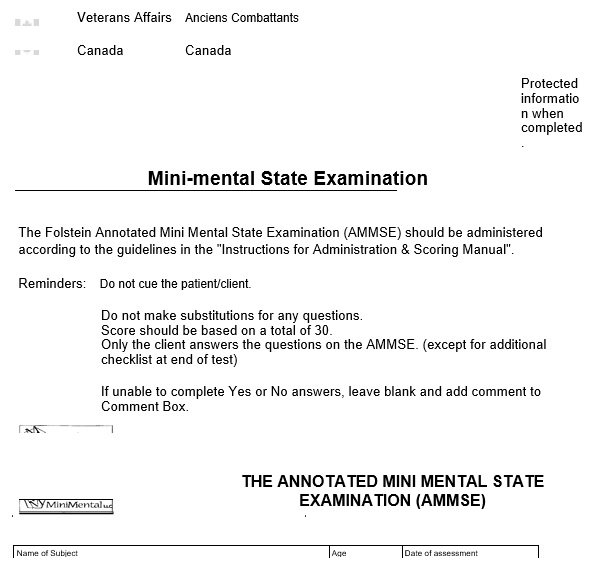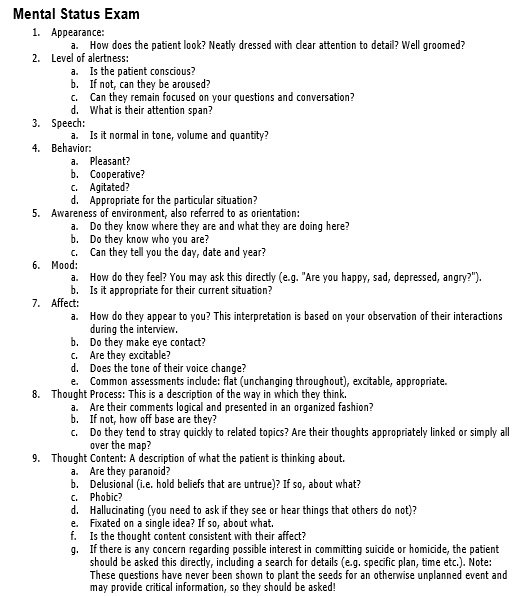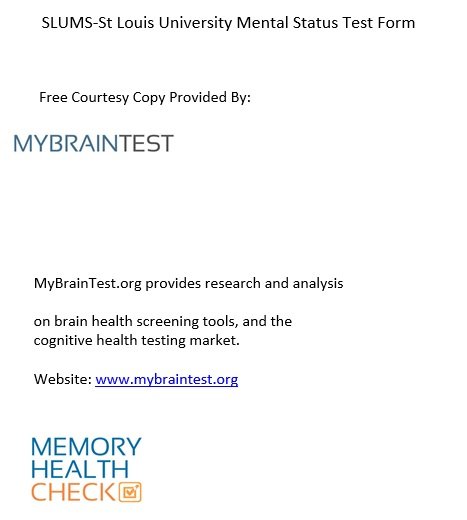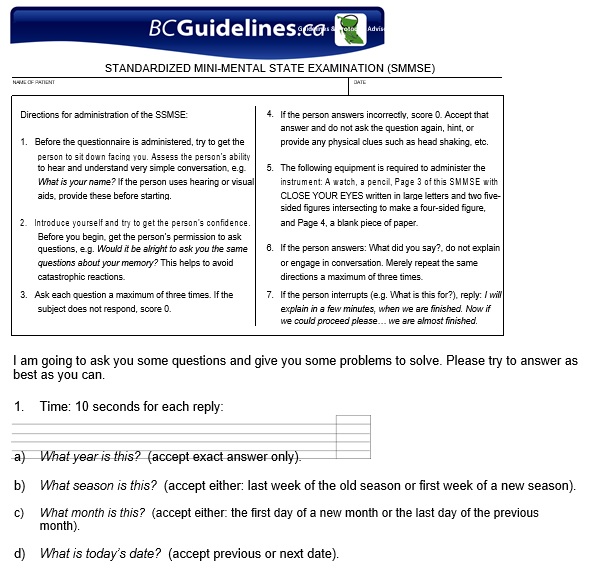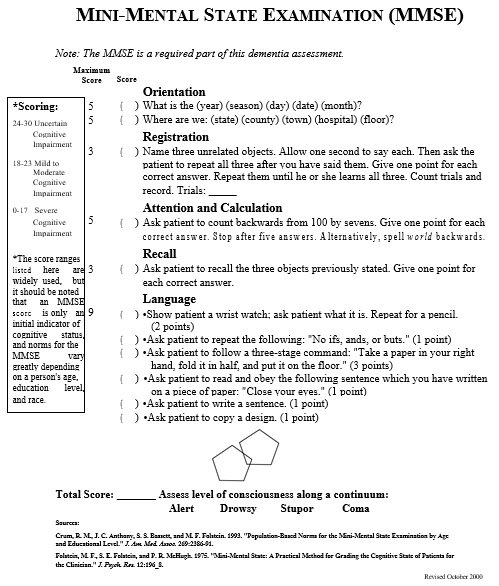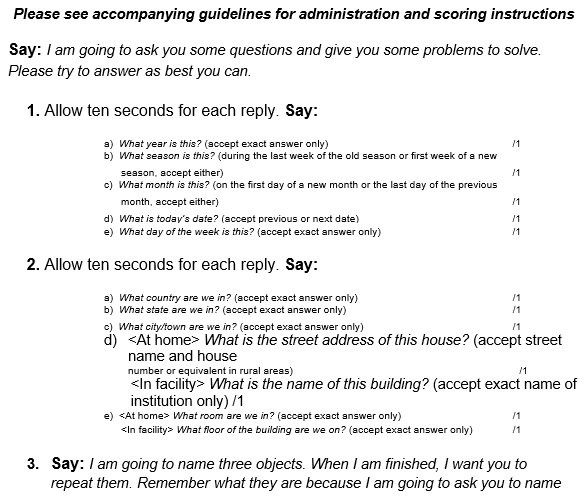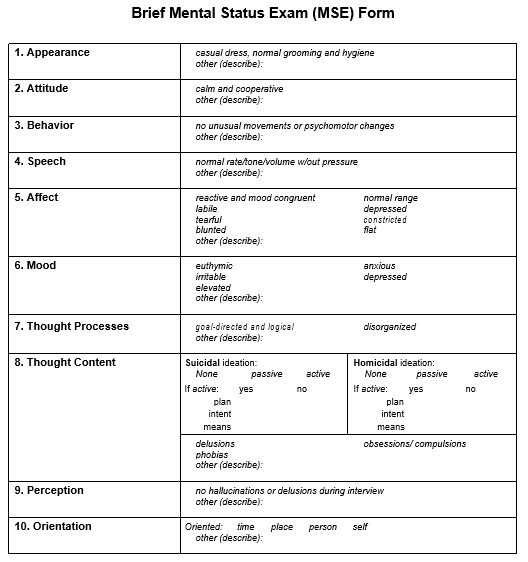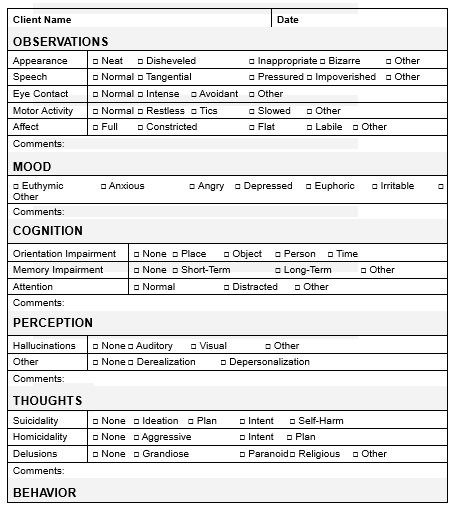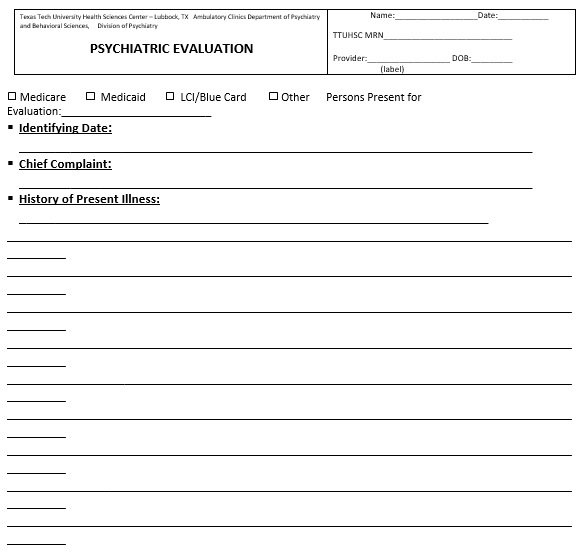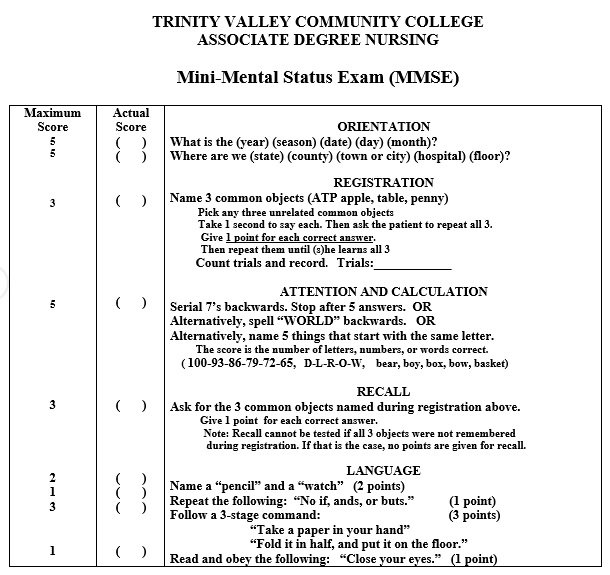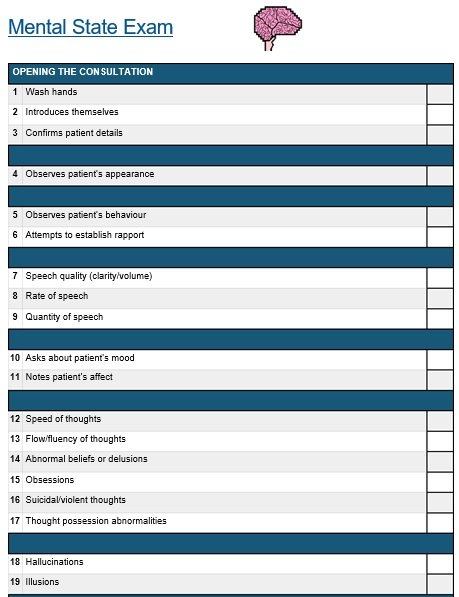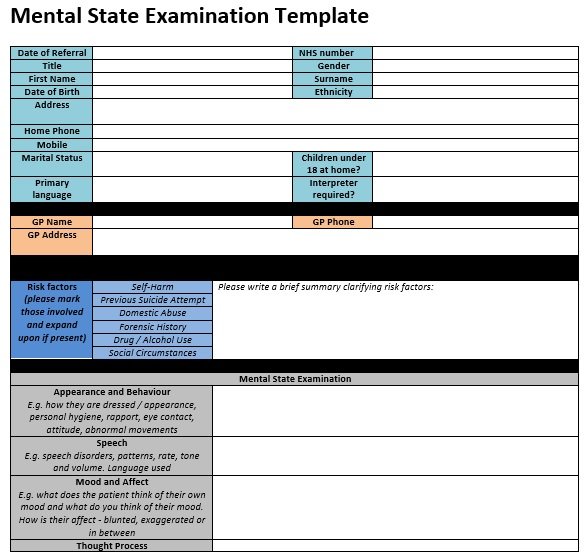A mental status exam template is a document used to record all of your observations and results while examining a person’s mental health. A mental status exam is similar to a physical exam that involves a series of examinations and observations to reveal pathological or normal findings.
Table of Contents
What is the Mental Status Examination?
The Mental Status Examination (MSE) is a method used in psychiatry and clinical psychology to identify the basic cognitive, emotional, and behavioral functioning of an individual. Other helping professions such as social work and coaching has also adapt this method. Usually, this method consists of a structured interview and systematic behavioral observations.
The elements of a mental status exam template:
Mental status examinations are not performed by the providers that are designed to evaluate the mental status of an individual. Most of the information related to his assessment is indirectly gathered throughout the course of a normal interview with a patient. However, this interview can give opportunity to consciously consider the components of a mental status exam template.
You may encounter persons with cognitive abilities in the course of practicing medicine daily such as;
- Significantly impaired
- Disordered thought processes
- Altered memory capacity
- Abnormal mental status
The main purpose is to classify such abnormalities as specifically as possible when they exist. Sometimes, the patient’s condition protects the comprehensive and ordered assessment of his mental status. To identify when to stop a more comprehensive examination requires some experience. In this process, forming actual diagnoses by using a mental status exam cheat sheet is the last step.
Before you can come up with a meaningful conclusion regarding the patient’s condition, you require many interactions along with information regarding the person’s normal level of function in a mental status exam cheat sheet. The elements of a mental status exam are the following;
Appearance
- What is the patient’s physical appearance?
- Is the patient dressed neatly indicating clear attention to detail?
- Is the patient well dressed?
Level of alertness
- Is the patient wake, if not, then can you awake up the patient?
- Or your conversation or questions, can the patient stay focused?
- How long is the patient’s focus span?
Speech
- During talking, does the patient use a normal volume, quantity, and tone?
Behavior
- Whether the patient is pleasant, agitated or cooperative?
- For the situation, is the patient’s behavior appropriate?
Orientation (Awareness of Environment)
- Do the patients know where he is and why he’s there?
- Does the patient know you?
- Can the patient tell you the day of the week and the full date?
Mood
- How’s the patient feel?
- Is the patient’s mood suitable for the situation?
Affect
- How’s the patient seem to you?
- Does the patient keep an eye contact?
- Does the patient excitable?
- Does the tone of the patient’s voice get modified as he talks?
Thought Process
- Is the patient talk in a logical and organized manner? If not, then how off-base is the patient?
- From your conversation, does the patient tend to stray?
- Are your patient’s thoughts perfectly linked or they scattered?
Thought Content
- Whether your patient paranoid or delusional?
- Whether your patient phobic or hallucinating?
- Is the patient fixate on a single idea?
Memory
- After a few minutes have passed, can the patient remember a list of objects?
- From the patient’s past, does he remember events or people?
Ability to perform calculations
- Whether the patient perform simple subtraction, addition, multiplication or division?
- For patient’s education level, are they response appropriate?
- When balancing his checkbooks or calculating change while purchasing items, has the patient noticed any difficulties?
Judgment
- Does the patient provide appropriate solutions or responses while given a situation?
Higher cortical reasoning and functioning
When you give the patient a situation or ask him questions, does he make abstract, concrete or bizarre interpretations? You should also check lab report templates.
How to examine mental status?
Here are some pointer that you can follow to examine the mental status of the patient;
Orientation
At first, ask the patient what is his name and the name of your establishment. Then, ask what date it is.
Short-term memory
Provide the patient a list of objects. Then, after 2 to 5 minutes, ask him to recall 3 of the objects
Long-term memory
Ask the patient regarding his past.
Math
For this, use a simple mathematical test. Provide the patient easy mathematical equations to solve. Also, provide him conditions where he has to calculate the amount of money he requires to pay while purchasing a number of items. Before the exam, prepare these problems and questions.
Word finding
Ask the patient to name as many items as he can think of. These objects are relevant to one category such as animals, countries, and the like within a minute.
Concentration and Attention
You should ask the patient to spell a 5-letter word backward in case the patient does this effortlessly then ask him to spell a 6-letter word the same way.
Naming Objects
Present an object to the patient. After that, ask him to name the object and its various parts.
Following Instructions
You have to start with 1-step instructions. Increase to 2-step instructions in case the patient can follow the first one. If the patient can really follow, move on to 3-steps instructions.
Writing
Here, ask the patient to write a complete sentence. The sentence should make sense. It must have a subject and an object. There is no need to check misspelled words.
Spatial orientation
In this section, ask the patient to draw a clock. Then, provide him a certain time to mark on the clock. The patient has to draw two pentagons that intersect with each other.
Abstract reasoning
Ask the patient to determine a theme between 3 to 4 objects. Indicate a couple of examples for this exercise.
Judgement
You have to ask the patient a hypothetical situation that needs good judgment. For example, if a patient found a wallet in front of a police station ask him what he would do.
How to apply for a mental status exam?
Creating a Mental Status Examination or MSE example is one of the main skills of every qualified mental health professional. In a psychiatric or outpatient hospital setting, this is considered as a key aspect of the first psychiatric evaluation. In this exam, during the interview, in the presence of the clinician systematic information is collected on the basis of the observation of the behavior of the patient.
Gathering proof of any signs or symptoms of a mental disorder is the main purpose of a mental status exam template. In addition, the information present in the mental status exam form regarding the patient’s insights, judgment, and capacity for abstract reasoning is used to make decisions about treatment settings.
To assess the patient’s cognition abilities, you can use a combination of closed and open questions and structured tests during an interview. When the nurses and doctors conduct a comprehensive physical examination, they also make a mental status exam as part of it.
Questions to ask clients during MSE:
Following questions you should ask to clients during MSE;
- What advantage do you get from this service?
- What are your strong points means in which you are specifically good?
- Do you need help psychological, emotionally, academically, and more?
- Did you have any psychological or other interventions in the past like psychotherapy, etc.?
- What are the main objectives of your life?
- What hurdles you are facing while achieving your objectives?
Conclusion:
In conclusion, a mental status exam template is a document that allows you to record your evaluation of a patient’s current mental status. During examining mental status, observe the patient’s behavior, general appearance, any bizarre or unusual perceptions, and all other aspects of cognition.
FAQS (Frequently Asked Questions)
An effective mental status exam is precise and consists of the following areas;
1- Appearance
2- Behavior/psychomotor activity
3- Attitude toward examiner (interviewer)
4- Affect and mood
5- Speech and thought
6- Perceptual disturbances
7- Orientation and consciousness
8- Memory and intelligence
There are 5 categories in which MSE can be divided;
1- General Appearance
2- Emotions
3- Thoughts
4- Cognition
5- Judgement and insight
There are 4 main elements of a mental status exam;
1- Attention
2- Language
3- Memory
4- Constructional ability and praxis

